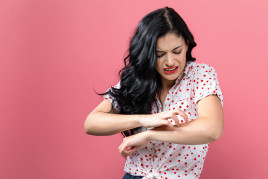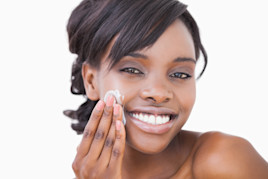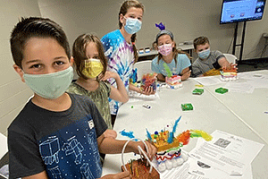How to treat sunburn
Dermatologist sunburn tips
You can get a sunburn after too much unprotected time in the sun — no matter your skin tone. Follow these tips from board-certified dermatologists to relieve your sunburn.
Your skin can burn if it gets too much sun without proper protection from shade, sun-protective clothing, and sunscreen. To help heal and soothe stinging skin, it is important to begin treating sunburn as soon as you notice it. The first thing you should do is get out of the sun—and preferably indoors.
Once indoors, these tips from board-certified dermatologists can help relieve the discomfort:
Take frequent cool baths or showers to help relieve the pain. As soon as you get out of the bathtub or shower, gently pat yourself dry.
Apply a moisturizer that contains aloe vera or soy to help soothe sunburned skin. Do this while your skin is still damp from a bath or shower and whenever you feel discomfort.
To relieve discomfort, you can also apply calamine lotion, place a cool, damp washcloth on the affected area, or take a colloidal oatmeal bath.Consider taking aspirin or ibuprofen to help reduce any swelling and discomfort.
Drink extra water. A sunburn draws fluid to the skin’s surface and away from the rest of the body. Drinking extra water when you are sunburned helps prevent dehydration.
If your skin blisters, allow the blisters to heal. Blistering skin means you have a second-degree sunburn. You should not pop the blisters, as blisters form to help your skin heal and protect you from infection. Keep blisters clean and apply petroleum jelly to protect them while they heal.
Protect your skin from the sun to prevent sunburn and reduce your risk of skin cancer and premature skin aging. Seek shade, and wear sun-protective clothing — such as long sleeves, pants, a wide-brimmed hat, and sunglasses with UV protection. Apply a broad-spectrum, water-resistant sunscreen with an SPF of 30 or higher to all skin not covered by clothing.
Although it may seem like a temporary condition, sunburn—a result of skin receiving too much exposure from the sun’s ultraviolet (UV) rays—can cause long-lasting damage to the skin. This damage increases a person’s risk for getting skin cancer, making it critical to protect the skin from the sun.
For questions about your sunburn or to learn how to better protect your skin from the sun, partner with a board-certified dermatologist.
Have a skin, hair, or nail problem?
No one understands your skin better than a board-certified dermatologist. Partner with the expert for the best care.
Written by:
Paula Ludmann, MS
Brooke Schleehauf
Reviewed by:
Neelam Khan, MD, MS, FAAD
Roopal Vashi Kundu, MD, FAAD
Laurel Geraghty, MD, FAAD
Ata Moshiri, MD, MPH, FAAD
Sanna Ronkainen, MD, FAAD
Desmond Shipp, MD, FAAD
Last updated: 5/20/24
 Atopic dermatitis: More FDA-approved treatments
Atopic dermatitis: More FDA-approved treatments
 Biosimilars: 14 FAQs
Biosimilars: 14 FAQs
 How to trim your nails
How to trim your nails
 Relieve uncontrollably itchy skin
Relieve uncontrollably itchy skin
 Fade dark spots
Fade dark spots
 Untreatable razor bumps or acne?
Untreatable razor bumps or acne?
 Tattoo removal
Tattoo removal
 Scar treatment
Scar treatment
 Free materials to help raise skin cancer awareness
Free materials to help raise skin cancer awareness
 Dermatologist-approved lesson plans, activities you can use
Dermatologist-approved lesson plans, activities you can use
 Find a Dermatologist
Find a Dermatologist
 What is a dermatologist?
What is a dermatologist?
